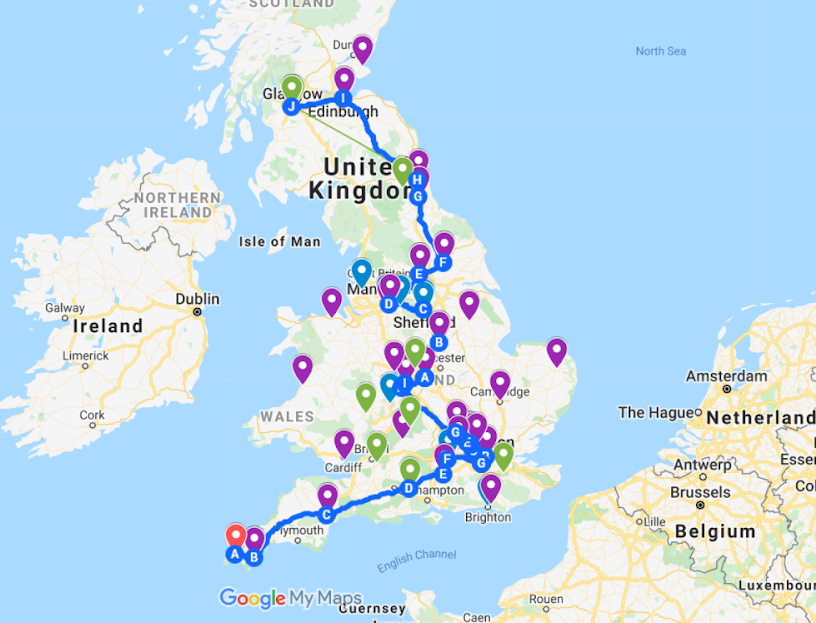A lot of my work this year is geared towards COP26, the UN climate negotiations being held in Glasgow in November.
The pathways to meet the stated international ambition within the Paris Agreement mean that COP26 is one of 2 opportunities in the coming decade to ensure our global emissions change from the projections on the left, to the projection on the left (stills taken from the UN Environment Programme emissions gap report)

This amounts to countries around the world agreeing commitments at 3 to 5 times the level they are at present.
At the same time, the UK gov’t is behind on preparations, there are huge uncertainties on planning because of covid, and there are few (if any) indications that COP26 will be deemed a success.
And so it is, that this year involves holding the tension. The tension of living through a time of possibility – the UK hosting both the G7 in June and COP26 in November – and not knowing how to mobilise in response to it.

I’m part of a group at YCCN (Young Christian Climate Network) starting to organise a relay from G7 and COP26.
We want to tell the story of this moment. It’s a moment which is both significant and fleeting. There’s no binary to the problem of emissions. The sooner we transition to no emissions the better, the longer we go, the greater the risks we will encounter.
We want the UK church to tell the story this year, and be witness to the decisions being made, to pray and to stand with the people and places around the world for whom the failure of COP26 will not merely cause disappointment, but fatality.
(A phrasing which takes the emotion out of death, but let’s be clear that it is death and destruction which are being wrought by our inability to reimagine and make courageous decisions about how we redirect finance and our collective energy).
Someone said this week that they were unsure how our doing anything would have impact. Sometimes we can make guesses about what will and won’t have impact, but I think it’s actually much more of an open question than we make out. If we take the long view, and look at this year through the lens of ‘deep time’ – a reference to the vast geological timescales against which humankind has existed on earth for only a miniscule period – then very few things have impact at all.
I know this term because of Roman Krznaric’s book ‘The Good Ancestor’ in which it is argued that deep time –
- gives perspective in a world driven by short-termism – we are encouraged to move away from infinitesimally short focus activities to ones which stretch horizons beyond our lifetimes;
- causes us to think about consequences – our short-term actions and innovations can cause change over an extraordinarily long time period;
- re-connects us with cyclical time, including the seasons, and its sense of eternal return; and
- positions us in the ‘grand pageant of life on earth’.
Thinking about time this way combines reassurance (through repetition) and challenge (through a sense of there being no beginning or end). It simultaneously calls me to sit back, assured of my mortality and limitations, and calls me to stand, because it is the changes to the climate which seem to disrupt deep time most profoundly – one of the features of the current geological epoch, the Anthropocene, is disturbance of some of the cycles that are otherwise so long-lasting.
I don’t know that being assured of failure is really reason not to act.
I don’t know that being assured of failure is really reason not to act. Dorothy Day talks about ‘holy folly’ (“[if my work is to survive] it must do so on the basis of something other than the wisdom of the world.”)
Assessing impact is important, but also a quick way to cynicism and paralysis. I hope that in the choices I make, a strong dose of open-heartedness, courage and vision leads me to a fair amount of holy folly.

“I don’t know that being assured of failure is really reason not to act.” I like that… You and Dorothy Day are in good company… like God telling his prophets that the people wouldn’t listen to the truth, but they should keep proclaiming it anyway. Let’s just do what we have to do the best way we can, and leave the results to Someone Else (easier said than done, but hey). Nice article. 🙂
LikeLiked by 2 people